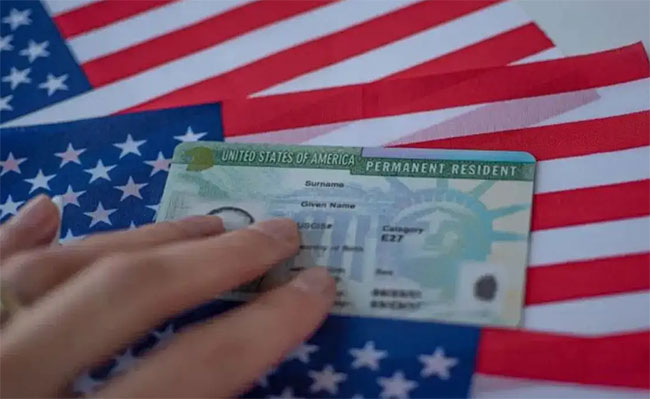Donald Trump weighs tighter green card rules for citizens of travel-ban nations
November 16, 2025 05:44 pm
The US administration is reportedly preparing a new immigration policy that could sharply restrict green card and other status benefits for people from countries already listed under President Donald Trump’s travel ban.
Internal drafts from the Department of Homeland Security (DHS) suggest the proposed changes would mark “country-specific factors” tied to the travel ban as major negative indicators for immigration applications.
What the draft policy would do
According to the draft guidance, US Citizenship and Immigration Services (USCIS) officers would be instructed to treat a person’s nationality from a travel-ban country as a “significant negative factor” when evaluating applications for green cards, asylum, parole, and other discretionary immigration benefits.
Importantly, this change would not apply to applications for US citizenship.
Unlike current practice—where USCIS weighs things like community ties, criminal history, and humanitarian needs—the new policy would formally fold in nationality-based risk into the decision-making.
Which countries are covered
The draft refers to the same countries targeted by Trump’s travel ban, which was announced in June. These include 12 nations—largely in Africa and the Middle East—such as Afghanistan, Iran, Libya, Somalia, Yemen, and others. In addition, seven more countries face partial restrictions.
Who might still be exempt
Some groups remain protected under existing exemptions, though the new proposal could still affect their future applications. Exempt categories include:
- Individuals with valid visas already in hand
- Current green-card holders (“lawful permanent residents”)
- Athletes traveling for major events (like the 2026 World Cup or 2028 Olympics)
- Afghans eligible under the Special Immigrant Visa (SIV) programme
- Certain persecuted minorities, diplomats, and those granted national-interest waivers
Still, many critics point out that these exemptions don’t necessarily shield everyone, especially when it comes to future discretionary benefits.
Bigger picture: A shift in immigration policy
If implemented, this policy would represent a major escalation in Trump’s crackdown on legal immigration.
By embedding nationality directly into immigration adjudications, it shifts how risk is assessed—turning what were once discretionary decisions into ones that could be automatically biased against people from certain countries.
Immigration advocates warn this could undermine confidence among immigrants who believed they had more stable paths to permanent residency—and potentially open fresh legal challenges from civil rights groups.
- Agencies












